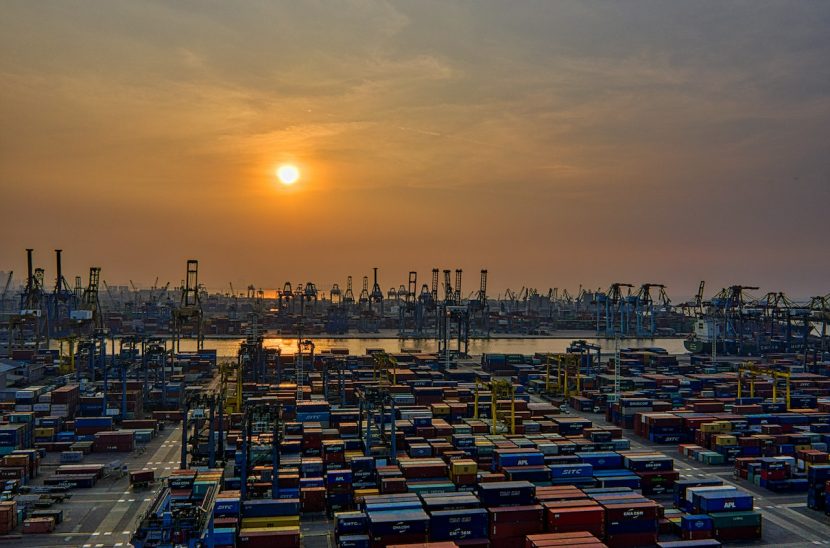Sustainable Commodity Trading and the Future of Commodities Trading in Nigeria
Introduction
Commodity trading, a cornerstone of global economies for centuries, has also been pivotal in Nigeria’s economic journey, given its abundant natural resources. However, with the global shift toward sustainability and heightened environmental awareness, the future of commodities trading in Nigeria stands at a critical juncture.
Statista reports show that the Commodities market’s nominal value is projected to reach US$402.90bn in 2023. In addition, i t is expected to show an annual growth rate (CAGR 2023-2028) of 2.35%, resulting in a projected total of US$452.50bn by 2028.
However, as the world evolves and embraces sustainability and environmental consciousness, the landscape of commodities trading is undergoing a profound transformation. The global community is increasingly scrutinising resource extraction and production’s environmental and social impacts. Consequently, Nigeria’s commodities trading sector faces a pivotal moment. It must navigate the complex intersection of economic growth, environmental responsibility, and social equity to secure its place in the evolving global marketplace.
Understanding Commodity Trading in Nigeria
Commodity trading in Nigeria revolves around exchanging raw materials, such as oil, agricultural products, solid minerals, and natural gas. Historically, Nigeria’s economy has heavily depended on oil exports, the country’s primary revenue driver. However, this over-reliance on a single commodity has made the economy susceptible to volatile global oil prices and environmental challenges, highlighting the need for diversification and sustainability in commodity trading.
The Concept of Sustainable Commodity Trading
Sustainable commodity trading is an approach that seeks to balance economic growth with environmental and social responsibility. It emphasises the following fundamental principles:
Environmental Responsibility: Sustainable commodity trading encourages practices that minimise the negative environmental impacts of commodity production and transportation. This includes reducing carbon emissions, conserving natural resources, and mitigating pollution.
Social Responsibility: It promotes fair labour practices, gender equality, and community development, ensuring that the benefits of commodity trading are distributed equitably among all stakeholders.
Economic Viability: Sustainability in commodity trading is not only about minimising environmental and social impacts but also about ensuring the long-term financial viability of the sector. This includes managing price volatility and market risks effectively.
The Future of Sustainable Commodity Trading in Nigeria
Diversification of Commodities: To reduce its vulnerability to oil price fluctuations, Nigeria is exploring diversification into non-oil commodities such as agriculture, solid minerals, and renewable energy sources. Sustainable practices in these sectors will be crucial to their long-term success.
Technology and Digitalisation: Technology and digitalisation will heavily influence Nigeria’s commodity trading future. Blockchain and IoT (Internet of Things) technologies can enhance transparency and traceability, ensuring that commodities meet sustainable standards.
Climate Change Resilience: Climate change poses significant risks to Nigeria’s agriculture and natural resource extraction. Sustainable practices that promote climate resilience, such as drought-resistant crops and responsible land management, will become increasingly important.
Ethical Sourcing and Certification: Consumers worldwide demand more transparency and ethical sourcing of commodities. Nigeria can capitalise on this trend by implementing certification standards and promoting responsible sourcing practices.
Infrastructure Development: Improving transportation and logistics infrastructure will be crucial for the efficient and sustainable trading of commodities within Nigeria and export. Investment in ports, roads, and rail systems can reduce transportation-related environmental impacts.
Policy and Regulation: The Nigerian government must enact and enforce policies and regulations that encourage sustainable commodity trading. This includes tax incentives for eco-friendly practices, stricter environmental standards, and support for small-scale producers.
Challenges and Solutions
While the future of sustainable commodity trading in Nigeria holds promise, it has challenges. Some of the key challenges include:
Corruption: Corruption has been a persistent issue in Nigeria, affecting the transparency and fairness of commodity trading. Addressing corruption through stringent enforcement of anti-corruption measures is essential.
Infrastructure Deficiencies: Inadequate infrastructure, mainly in rural areas, can hinder sustainable commodity production and transportation. Public-private partnerships can help address these deficiencies.
Access to Finance: Small-scale farmers and producers often need more access to affordable finance. Encouraging microfinance institutions and providing credit facilities can support sustainable practices among these groups.
Education and Training: Promoting sustainable practices requires educating and training farmers and producers. Extension services and vocational training can help build capacity and spread knowledge.
Sustainable commodity trading is the future not only for Nigeria but for the global economy as well. Nigeria’s rich natural resources present a tremendous opportunity for growth and development, but this must be pursued with a focus on sustainability. By diversifying commodities, embracing technology, and implementing ethical and responsible practices, Nigeria can ensure a prosperous and sustainable future for its commodities trading sector. The government, private sector, and civil society must collaborate to make this vision a reality and secure a brighter future for Nigeria’s economy and environment.
At Golden Alchemy International, we are driven towards leading the trading industry in Nigeria and across Africa and beyond. We have successfully traded local commodities such as Cement, salt, fertiliser, spaghetti, flour and sugar across the country and outside borders. Partner with us today and be part of a promising future.



